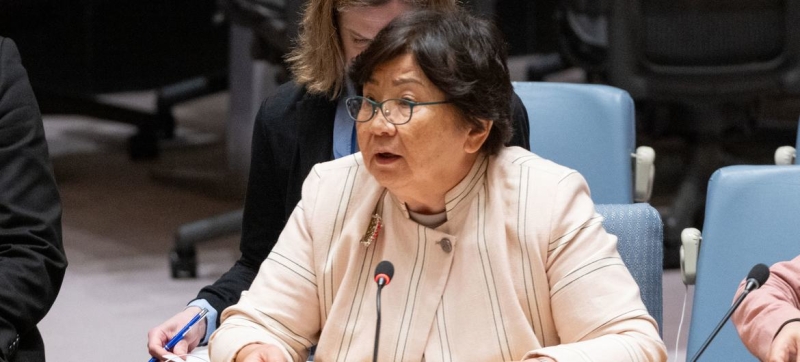
Special Representative of the Secretary General in Afghanistan Roza Otunbaeva. Roza Otunbaeva: restrictions on women’s rights in Afghanistan undermine the de facto authorities’ desire for legitimacy Human rights
The de facto authorities of Afghanistan continue to maintain stability, but there are signs of growing popular discontent in the country, Roza Otunbayeva, Special Representative of the Secretary General in Afghanistan, said at a briefing at the UN Security Council. “As an international community, we are still in crisis management mode,” she added.
“Fragile” political stability
Otunbayeva noted that thanks to the participation of regional players in promoting the expansion of trade, diplomatic contacts and economic investment, the situation in Afghanistan has become more stable. This has been facilitated by a significant improvement in the security situation and a reduction in corruption. Afghanistan, Otunbaeva said. She also stated the need for closer cooperation in the fight against drugs.
Political stability, “at first glance,” remains, the Special Envoy noted. On the other hand, political parties and civil society organizations have been banned and the media face restrictions.
“Stability that relies on the suppression of opposition ideas is inevitably fragile stability,” Otunbaeva said.
She reported on the “popular protests” taking place in Afghanistan against policies of the de facto authorities, including against the ban on the cultivation of opium, which left people without a livelihood.
Poverty and donor support
The country’s population lives in poverty despite the fact that donors have provided billions of dollars to provide humanitarian assistance to those in need. Currently, donor resources are declining due to growing global demand for them, Otunbaeva noted. The 2024 relief plan is only 20 percent funded.
“Donors would be more confident in the effectiveness of their aid if de facto authorities lifted restrictions on women’s work in NGOs and the UN and provided greater transparency about what income they receive and how it is spent,” the Special Representative said.
1000 days without school
Otunbaeva reported that Afghan girls have not been going to school for 1000 days. The restrictions imposed by the Taliban have tragic consequences for women and negatively affect the population as a whole.
According to the latest information, female Afghan civil servants forced to work from home , are facing steep pay cuts, leaving them unable to pay rent or support their families. Employees of the UN mission in Afghanistan are trying to get clarification from the de facto regarding the relevant decree.
“These restrictions deprive the country of the vital human capital it needs to implement the Taliban’s self-sufficiency policies. They contribute to the brain drain that is undermining Afghanistan’s future. While deeply unpopular, they undermine the de facto authorities’ claims to legitimacy. And they continue to block diplomatic solutions that would lead to the reintegration of Afghanistan into the international community,” Otunbaeva said.
She noted the efforts of the Organization of Islamic Cooperation, which continues advocate for the lifting of these bans and remind the de facto authorities that they have no basis in Islam.
Meeting in Doha
Otunbayeva welcomed the Taliban’s intention to take part in the UN conference on Afghanistan in Doha. She emphasized that the participation of the de facto authorities is necessary to launch the process of establishing trust between them and the international community.
“I would like to emphasize that this position is shared by the Afghan population,” said Otunbaeva.
“We hope that in Doha, key stakeholders will come to the negotiating table… and agree on next steps to eliminate the uncertainty facing the Afghan people,” she concluded.
Read also:
